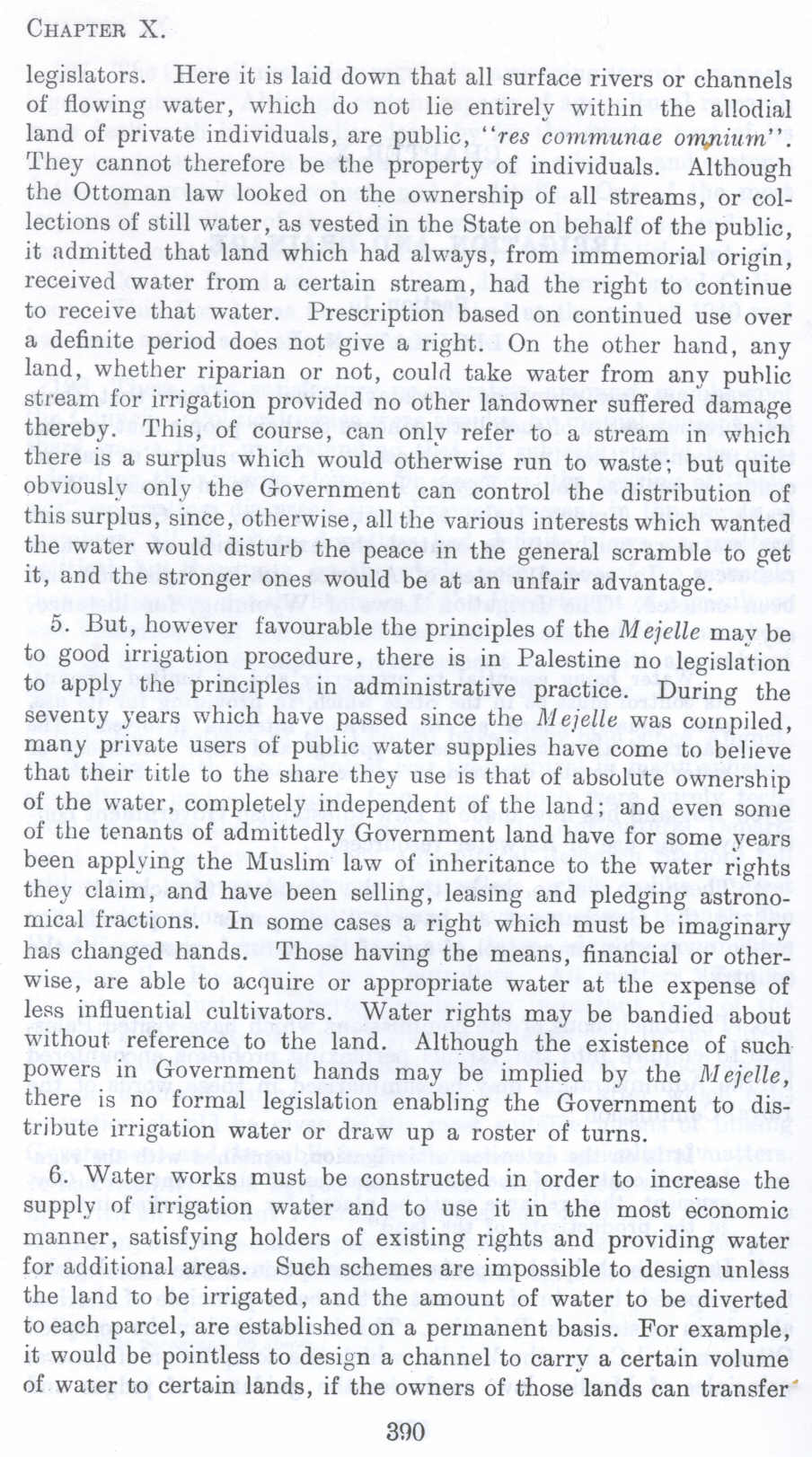| Prev | Next |  |
| Prev | Next |
| PalestineRemembered | About Us | Oral History | العربية | |
| Pictures | Zionist FAQs | Haavara | Maps | |
| Search |
| Camps |
| Districts |
| Acre |
| Baysan |
| Beersheba |
| Bethlehem |
| Gaza |
| Haifa |
| Hebron |
| Jaffa |
| Jericho |
| Jerusalem |
| Jinin |
| Nablus |
| Nazareth |
| Ramallah |
| al-Ramla |
| Safad |
| Tiberias |
| Tulkarm |
| Donate |
| Contact |
| Profile |
| Videos |
British Mandate: A Survey of Palestine: Volume I - Page 390 |
Disclaimer
The above documents, article, interviews, movies, podcasts, or stories reflects solely the research and opinions of its authors. PalestineRemembered.com makes its best effort to validate its contents.


Post Your Comment
*It should be NOTED that your email address won't be shared, and all communications between members will be routed via the website's mail server.
legislators. Here it is laid down that all surface rivers or channels of flowing water, which do not lie entirely within the allodial land of private individuals, are public, "res commune omnium". They cannot therefore be the property of individuals. Although the Ottoman law looked on the ownership of all streams, or collections of still water, as vested in the State on behalf of the public, it admitted that land which had always, from immemorial origin, received water from a certain stream, bad the right to continue to receive that water. Prescription has ed on continued use over a definite period does not give a right. On the other hand, any land, whether riparian or not, could take water from any public stream for irrigation provided no other landowner suffered damage thereby. This, of course, can only refer to a stream in which there is a surplus which would otherwise run to waste; but quite obviously only the Government can control the distribution of this surplus, since, otherwise, all the various interests which wanted the water would disturb the peace in the general scramble to get it, and the stronger ones would be at an unfair advantage.
5. But, however favourable the principles of the Mejelle may be to good irrigation procedure, there is in Palestine no legislation to apply the principles in administrative practice. During the seventy years which have passed since the Mejelle was compiled , many private users of public water supplies have come to believe that their title to the share they use is that of absolute ownership of the water, completely independent of the land; and even some of the tenants of admittedly Government land have for some years been applying the Muslim law of inheritance to the water rights they claim, and have been selling, leasing and pledging astronomical fractions. In some cases a right which must be imaginary has changed bands. Those having the means, financial or otherwise, are able to acquire or appropriate water at the expense of less influential cultivators. Water rights may be bandied about without reference to the land. Although the existence of such powers in Government hands may be implied by the Mejelle, there is no formal legislation enabling the Government to distribute irrigation water or draw up a roster of turns.
6. Water works must be constructed in order to increase the supply of irrigation water and to use it in the most economic manner, satisfying holders of existing rights and providing water for additional areas. Such schemes are impossible to design unless the land to be irrigated, and the amount of water to be diverted to each parcel, are established on a permanent has is. For example, it would be pointless to design a channel to carry a certain volume of water to certain lands, if the owners of those lands can transfer'
Page 390